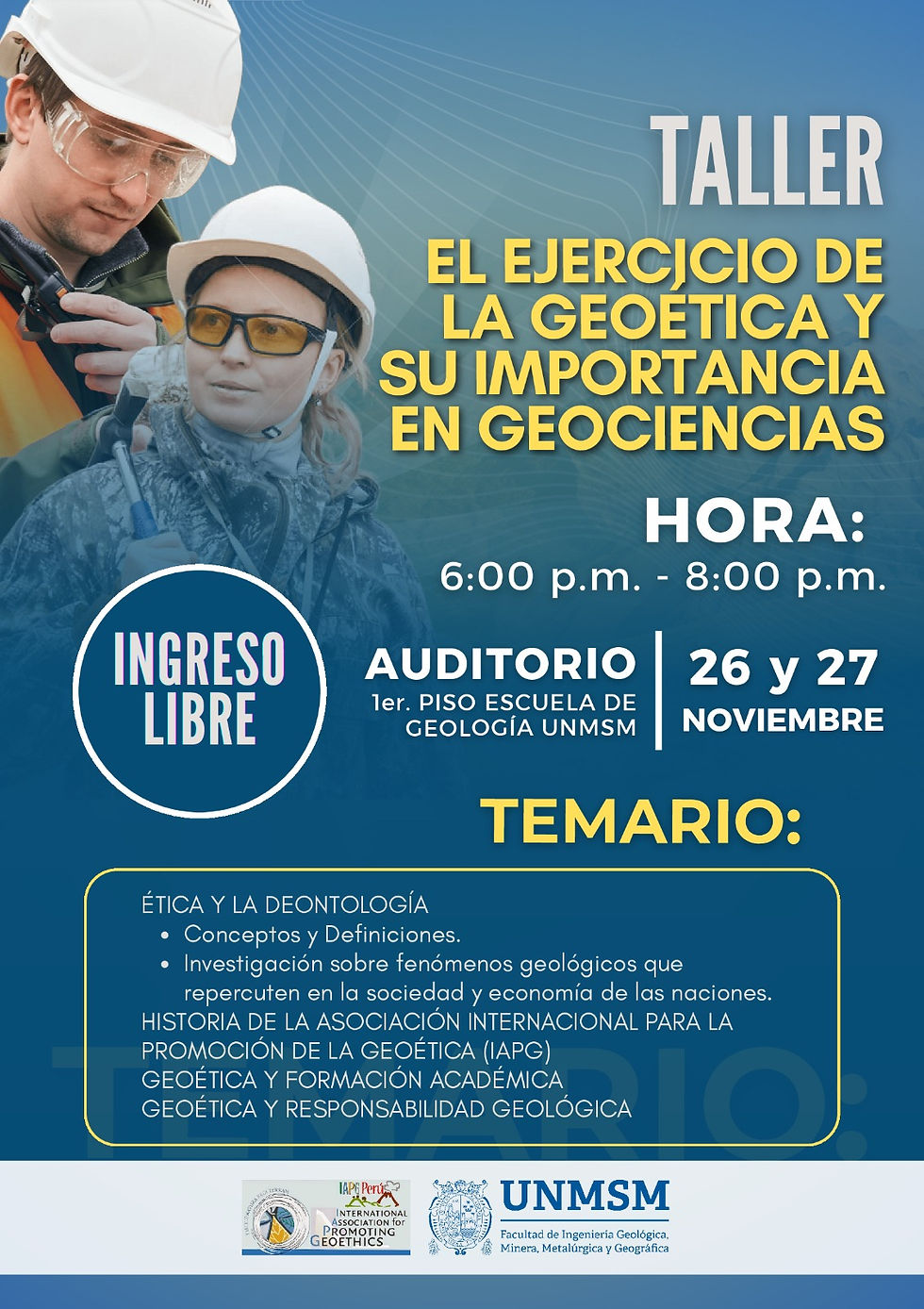A Wider Perspective on Chemistry and Sustainability (by Enrico Cameron, Italy)
- iapgeoethics
- Aug 2, 2024
- 2 min read

Enrico Cameron (GeoStudio – Environmental and Geological Consulting Office, Italy):
In May 2024, the journal Chemical Science, published by the Royal Society of Chemistry, issued the open-access paper titled “An anthropocene-framed transdisciplinary dialog at the chemistry-energy nexus”.
The paper is authored by a group of researchers from diverse disciplinary backgrounds, including chemistry, economics, history, and ethics, and it introduces the need for interdisciplinary connections between chemistry, social sciences, and humanities to address sustainability challenges. Specifically, the paper first analyzes — at the global scale — the current role and impact of five key substances or groups of substances (carbon dioxide, hydrogen, ammonia, methane, and plastics). Then, the article discusses the projected role of these substances in low-carbon technological scenarios devised by different leading organizations with the primary aim of combating climate change and pollution.
A key point of the paper is that these scenarios have (mostly unacknowledged) limitations due to their lack of incorporation of insights from history, economics, political science, ethics, and other social sciences. These omissions can lead not only to a failure in achieving the desired objectives, but also to a worsening of the actual situation, with a further exceedance of planetary boundaries and the exacerbation of socio-political and economic problems.
The authors advocate for broader, transdisciplinary approaches to address the challenges of the Anthropocene and call for the integration of diverse perspectives to inspire new paradigms for the chemistry-energy nexus. These perspectives include non-orthodox economics, decolonial studies, gender studies, ecological economics, and post-growth theories.
The article also emphasizes the ethical responsibility of scientists in shaping sustainable solutions and encourages researchers (chemists, in this case) to consider non-hegemonic frameworks and alternative economic, social, and technological models for a more equitable and sustainable future.
Reference
Prévot M.S., Finelli V., Carrier X., Deplano G., Cavallo M., Quadrelli E.A., Michel J., Pietraru M.-H., Camp C., Forghieri G., Gagliardi A., Seidel S., Missemer A., Reuillard B., Centrella B., Bordiga S., Salamanca González M.G., Artero V., Birkelbach K.V.A. and von Wolff N. (2024). An anthropocene-framed transdisciplinary dialog at the chemistry-energy nexus. Chemical Science, 15(24), 9054-9086. https://doi.org/10.1039/D4SC00099D
Picture credit
From https://pixabay.com/
Other articles in the IAPG Blog:
IAPG - International Association for Promoting Geoethics:
IUGS - Commission on Geoethics:
CIPSH - Chair on Geoethics:




This is a very insightful article highlighting the importance of connecting chemistry with social sciences and ethics. Just like planning a successful Manaslu Circuit trek, addressing sustainability requires careful consideration of many interconnected factors—environmental, social, and economic—to ensure a balanced and lasting outcome. A much-needed perspective for tackling the challenges of the Anthropocene.
Really interesting article! I love how it highlights the need to connect chemistry with ethics, social sciences, and sustainability. Just like planning a peak climbing in Nepal, solving climate and energy challenges requires careful preparation, teamwork, and considering multiple perspectives to achieve success.
Really interesting read! It’s true that chemistry and technology alone can’t solve sustainability challenges. Including perspectives from social sciences, ethics, and diverse frameworks makes solutions much more effective and fair. Just like preserving natural areas such as Langtang Valley requires not only environmental science but also careful consideration of local communities and culture.
Really interesting read! I like how the article emphasizes that solving sustainability challenges isn’t just about chemistry or technology, but also about including history, ethics, and social sciences. It reminds me of trekking the Everest View Trail—just like understanding the mountains requires looking at the land, culture, and climate together, solving climate challenges needs a broad, interdisciplinary perspective.
I found matlab assignment help useful while practicing MATLAB problems, especially for understanding logic errors and improving my coding approach.